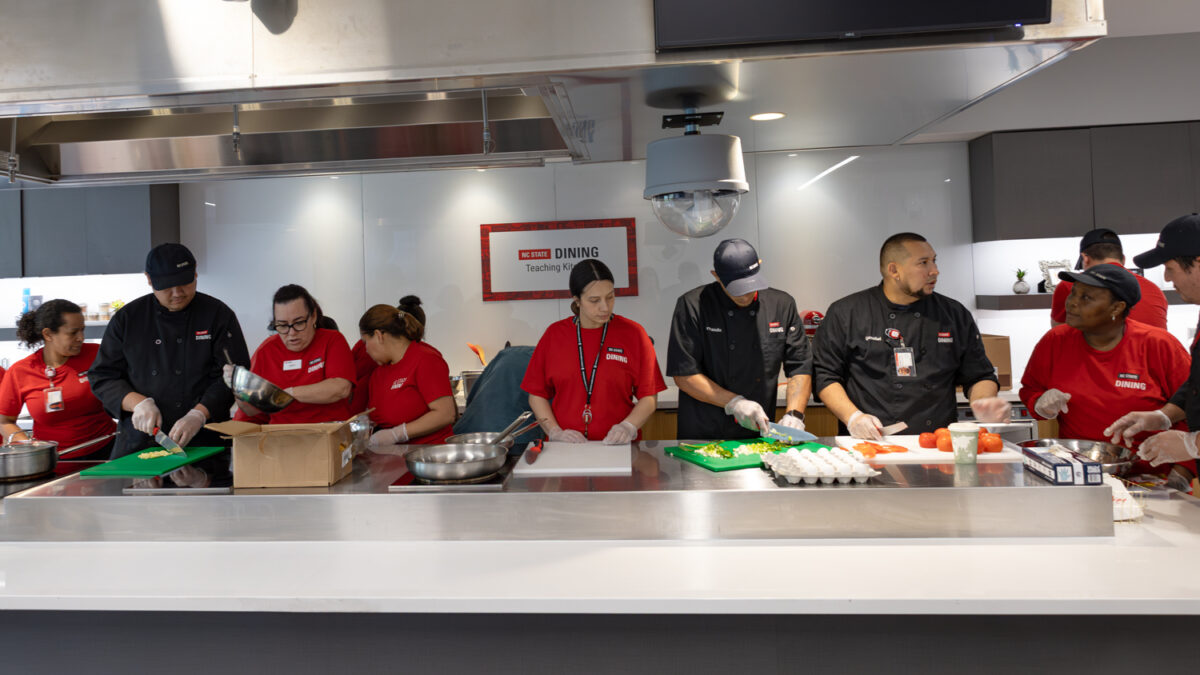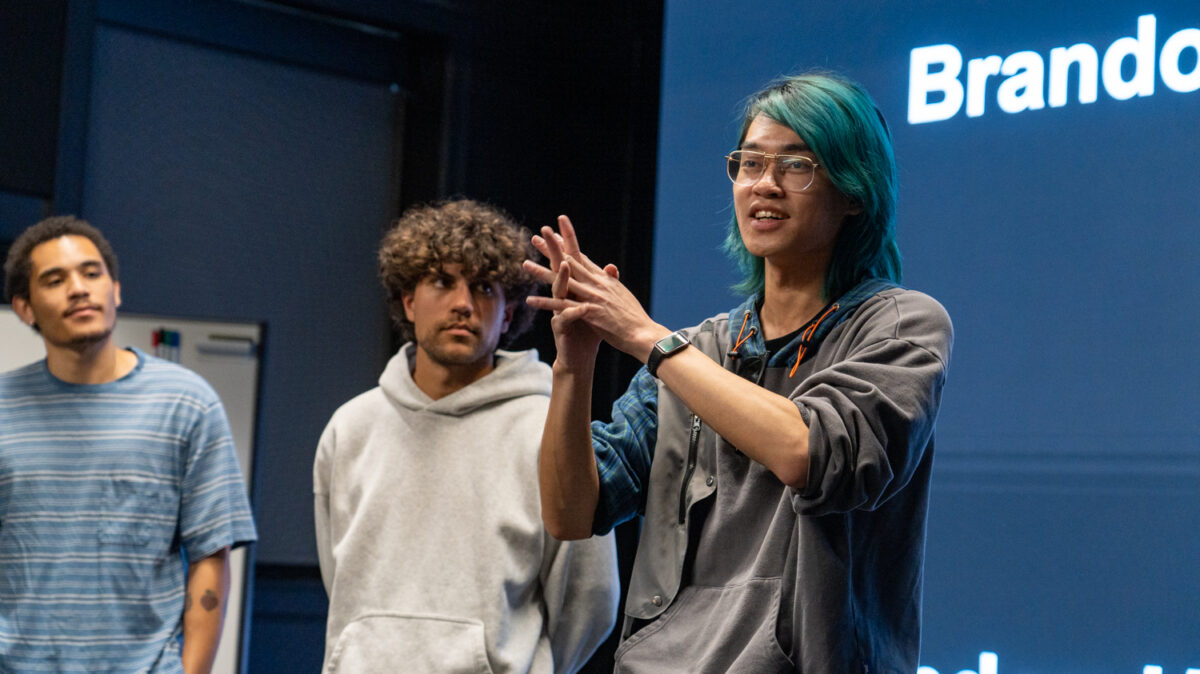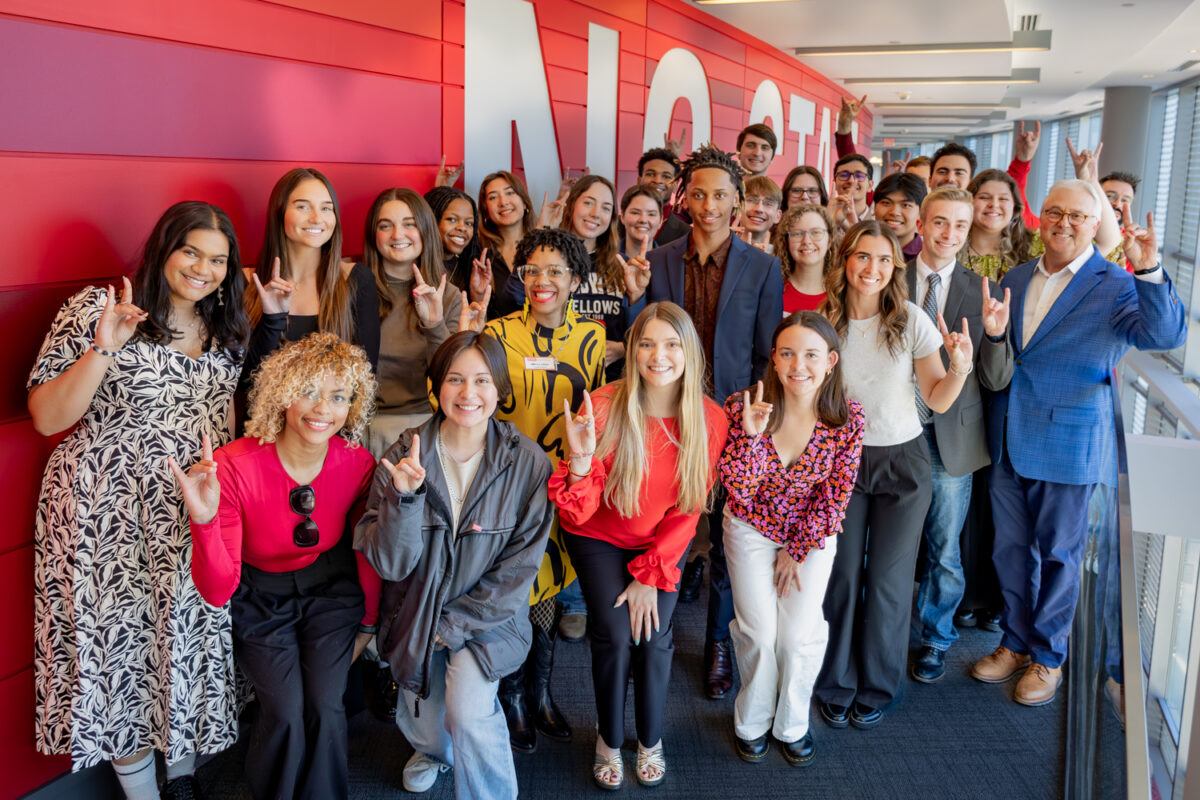Associate Professor Jamie Pearson Addresses Special Education Needs in the U.S. and Abroad through Grant-funded Projects
Jamie Pearson, an associate professor of special education in NC State’s College of Education, is working to improve special education in the United States and internationally through two recently funded projects.
As part of a consortium with Texas A&M University, Florida State University, George Mason University, University of Central Florida and the University of North Carolina at Charlotte, Pearson will represent NC State in the Special Education Teacher Education Policy, Practice, and Research Doctoral Training Consortium (SPARC), funded by $950,647 from the U.S. Department of Education’s Office of Special Education Programs.
The SPARC Consortium is a fellowship opportunity for 22 doctoral students across participating institutions who want to become leaders in the field of special education. Participation in the program will enable these doctoral students to become experts in the field through comprehensive, competency-based training alongside tiered mentorship and engagement with leading special education faculty.
The program, Pearson said, will address the need to develop leaders who can shape policies that are inclusive of individuals with disabilities, mentor future generations of special education teachers, and bridge research and practice to address disparities that exist between students with and without disabilities and equip future educators to support all students with disabilities.
“I hope the SPARC Consortium will help transform the landscape of special education preparation in higher education by developing a new generation of scholars who are strong teacher educators and researchers,” said Pearson, adding the ultimate goal of the consortium is to inspire more collaborative approaches and strengthen the pipeline of special education professionals.
In addition to her work on SPARC, Pearson is also the principal investigator on a $55,171 Spencer Foundation Grant entitled “The Landscape of Education for Children with Autism Spectrum Disorder and Other Neurodevelopmental Disabilities in Kenya.”
This project, conducted in collaboration with the University of Virginia, will enable an interdisciplinary team of U.S. and Kenyan researchers to explore factors that influence access to and the quality of educational services for students with autism and neurodevelopmental disabilities in Kenya, as well as the systems in place to support those students.
The project will explore perspectives from families, educators, administrators, policymakers and students to identify the strengths, needs and barriers associated with educating Kenyan students with autism and neurodevelopmental disabilities.
Pearson said she hopes the work will ultimately lead to more supportive environments for students with autism and neurodevelopmental disabilities in Kenyan schools and communities.
“Over time, I believe this will lead to earlier identification, more individualized instruction and a shift in attitudes and beliefs about disabilities — ultimately improving educational experiences and outcomes for students with disabilities across Kenya,” she said.
The work in Kenya is one of two international projects Pearson is currently involved in, as she has been providing ongoing professional development for the Savanna-LaMar Inclusive Academy (Sav Inclusive), the first public school of its kind in Jamaica that welcomes children with and without disabilities to learn in a mixed-ability environment.
The ability to form these international partnerships, she said, is essential as access to resources, knowledge and support for students with disabilities varies greatly across different countries. The ability to conduct international research helps to develop sustainable interventions that meet the needs of students and families in their specific local contexts.
“I believe deeply in the value of cross-cultural collaboration — not only to share evidence-based practices, but also to learn from the strengths and resilience of communities around the world,” Pearson said. “Ultimately, working internationally challenges me to think more globally, to grow as a researcher and practitioner, and to be more responsive to the diverse ways that disability is understood and supported in a global context.”
This post was originally published in College of Education News.
- Categories:


